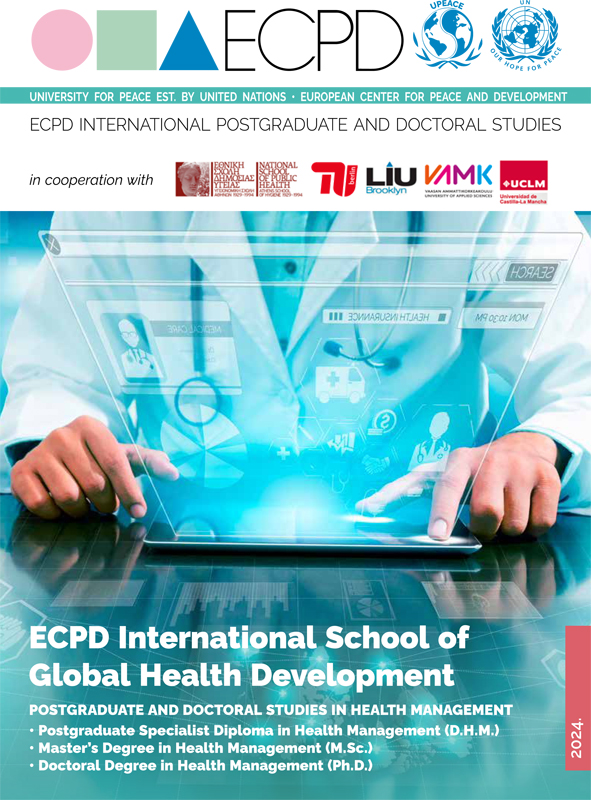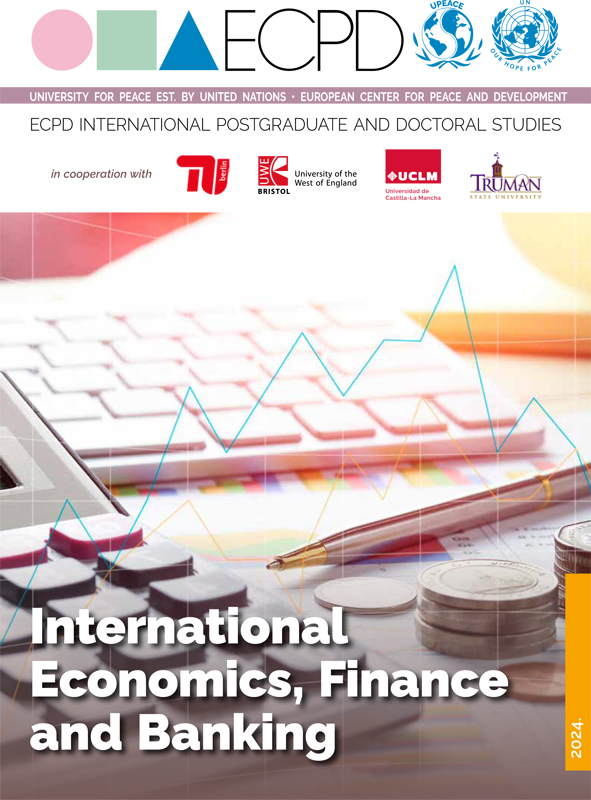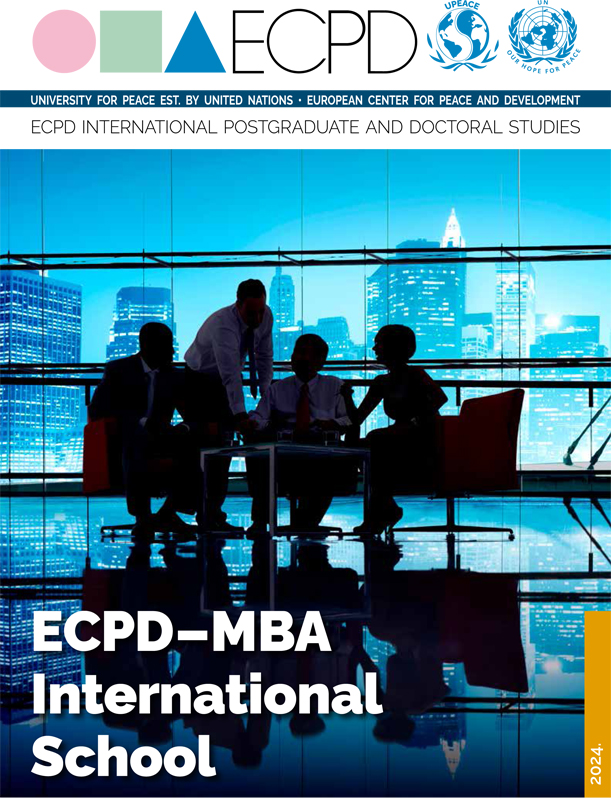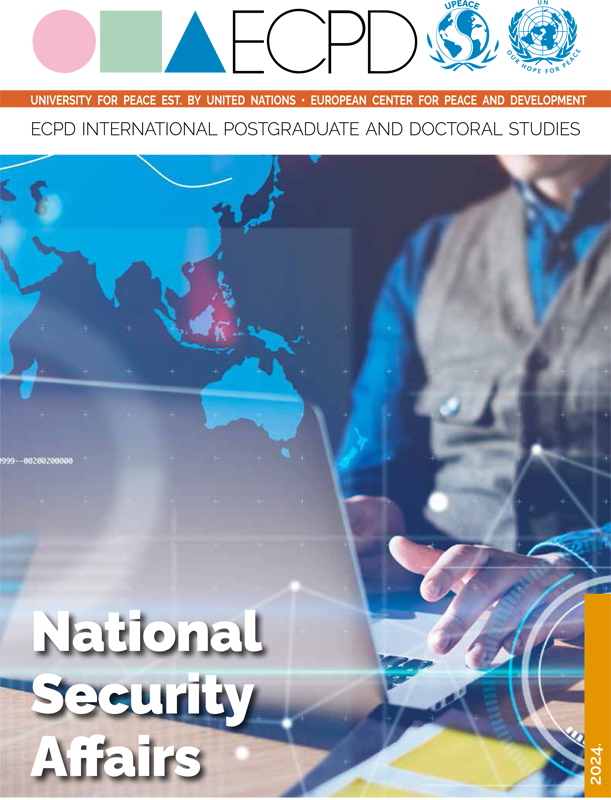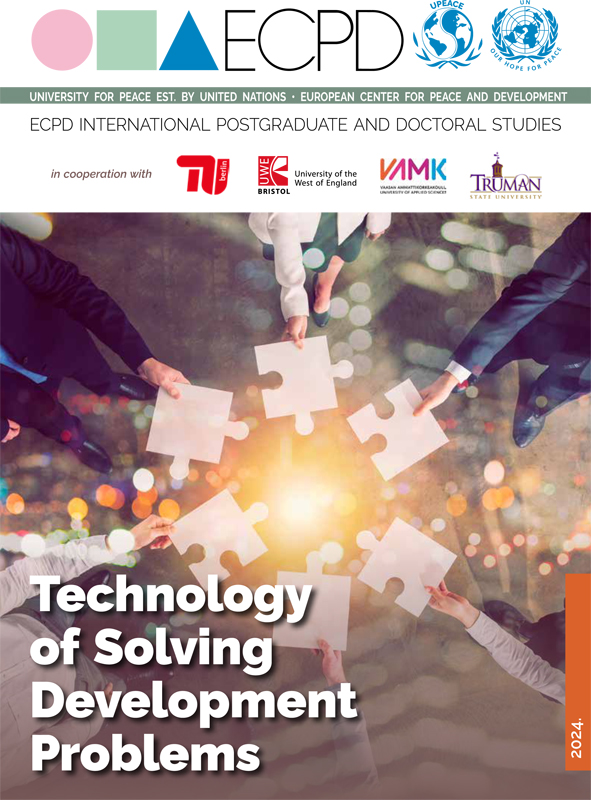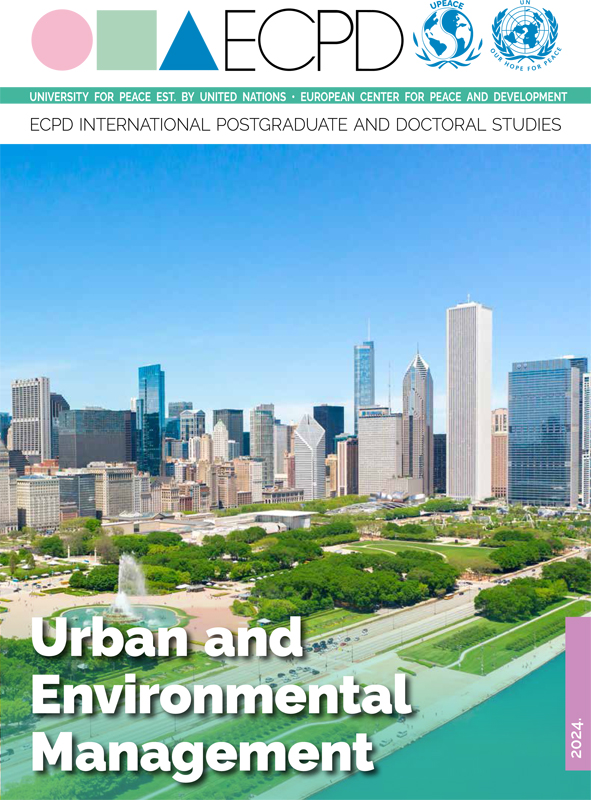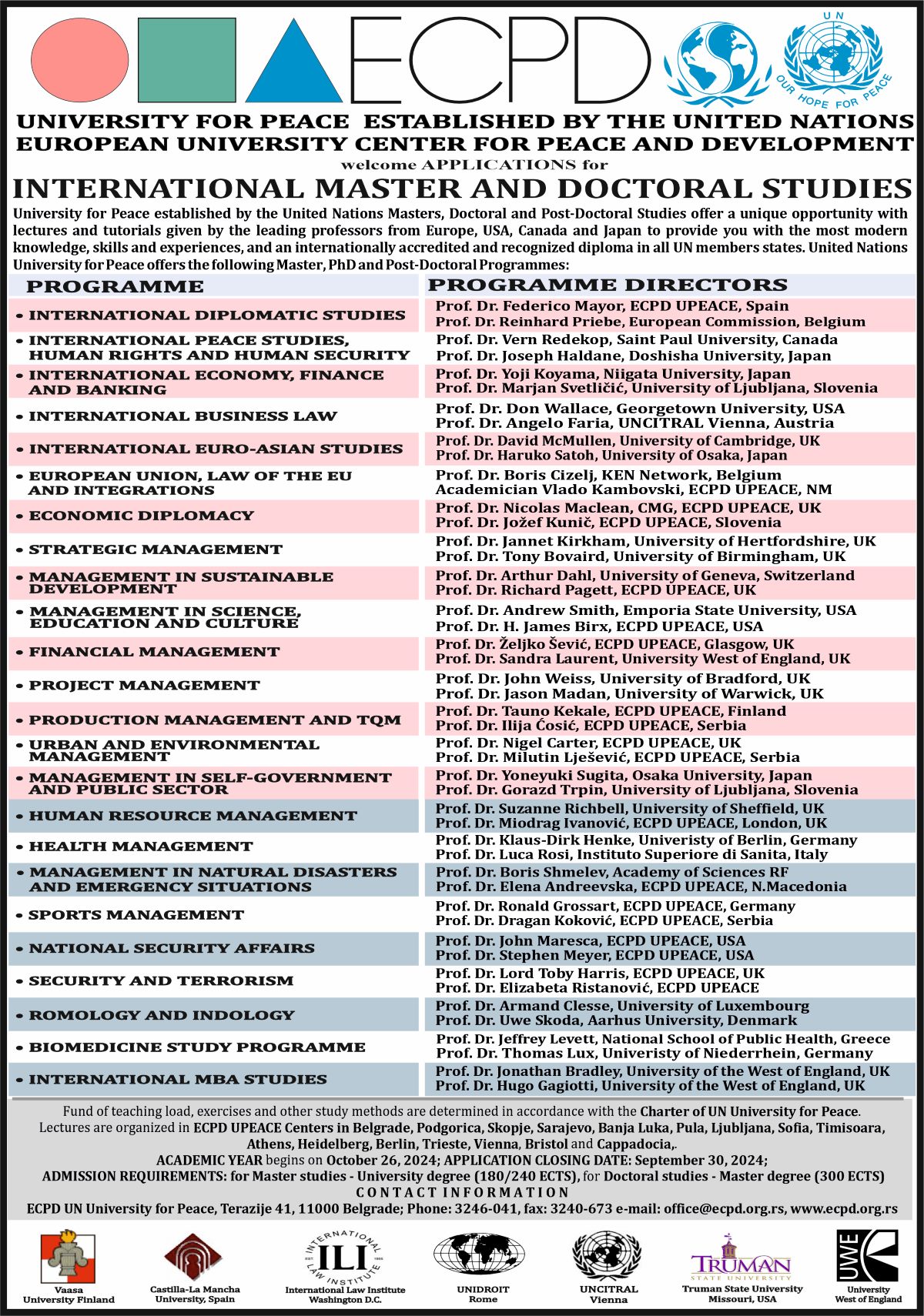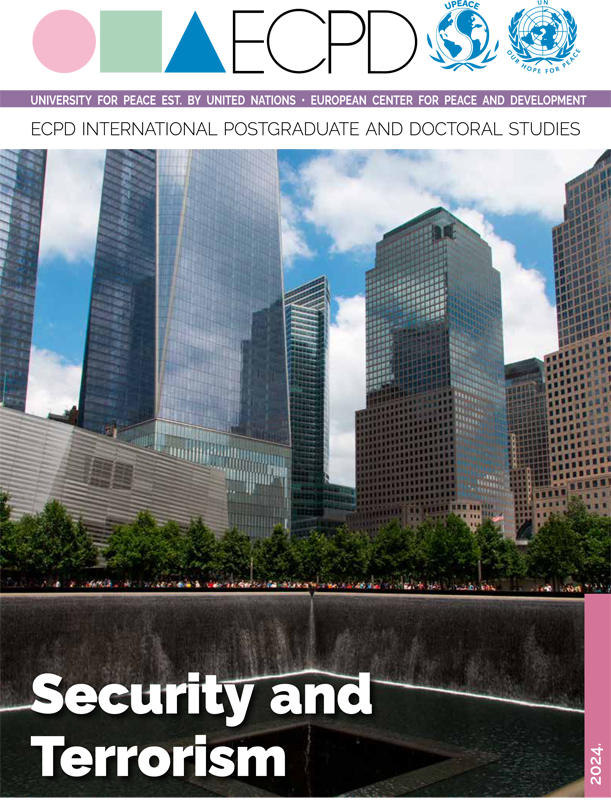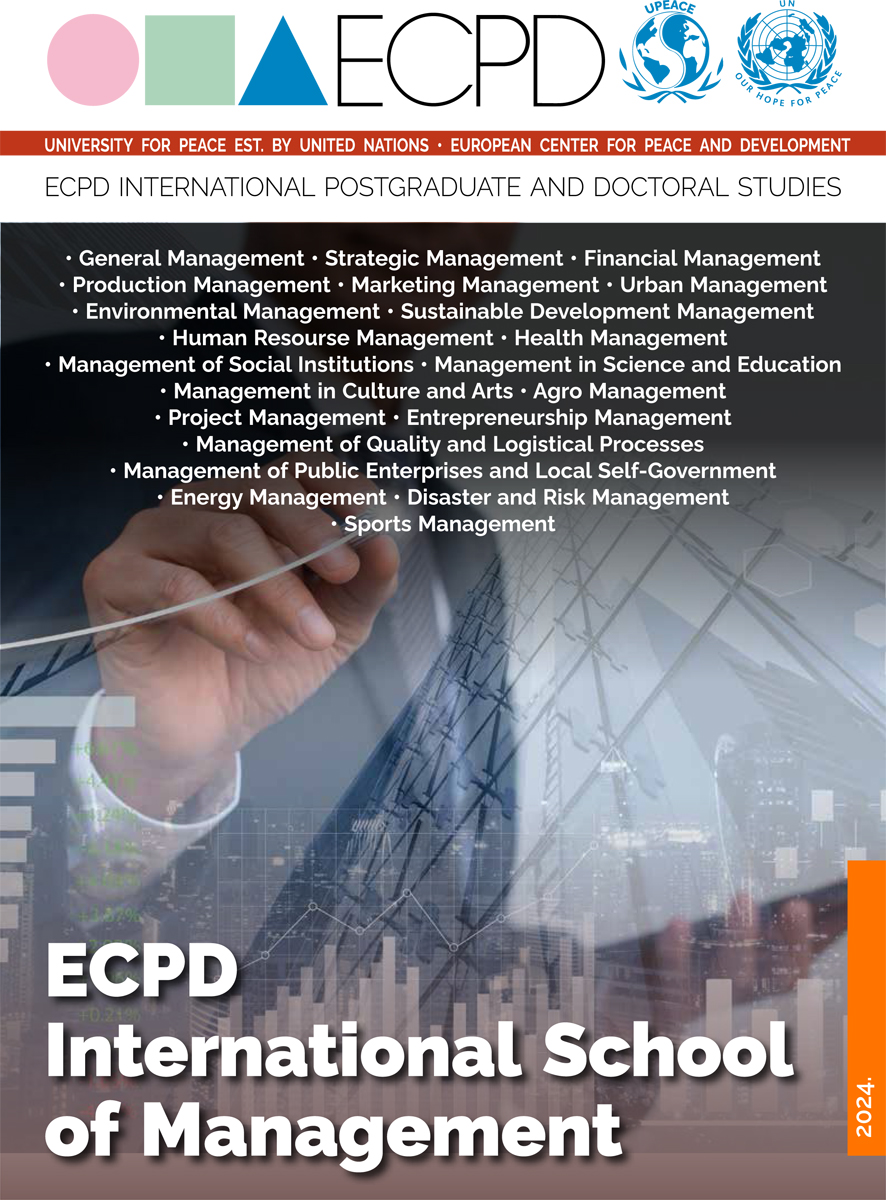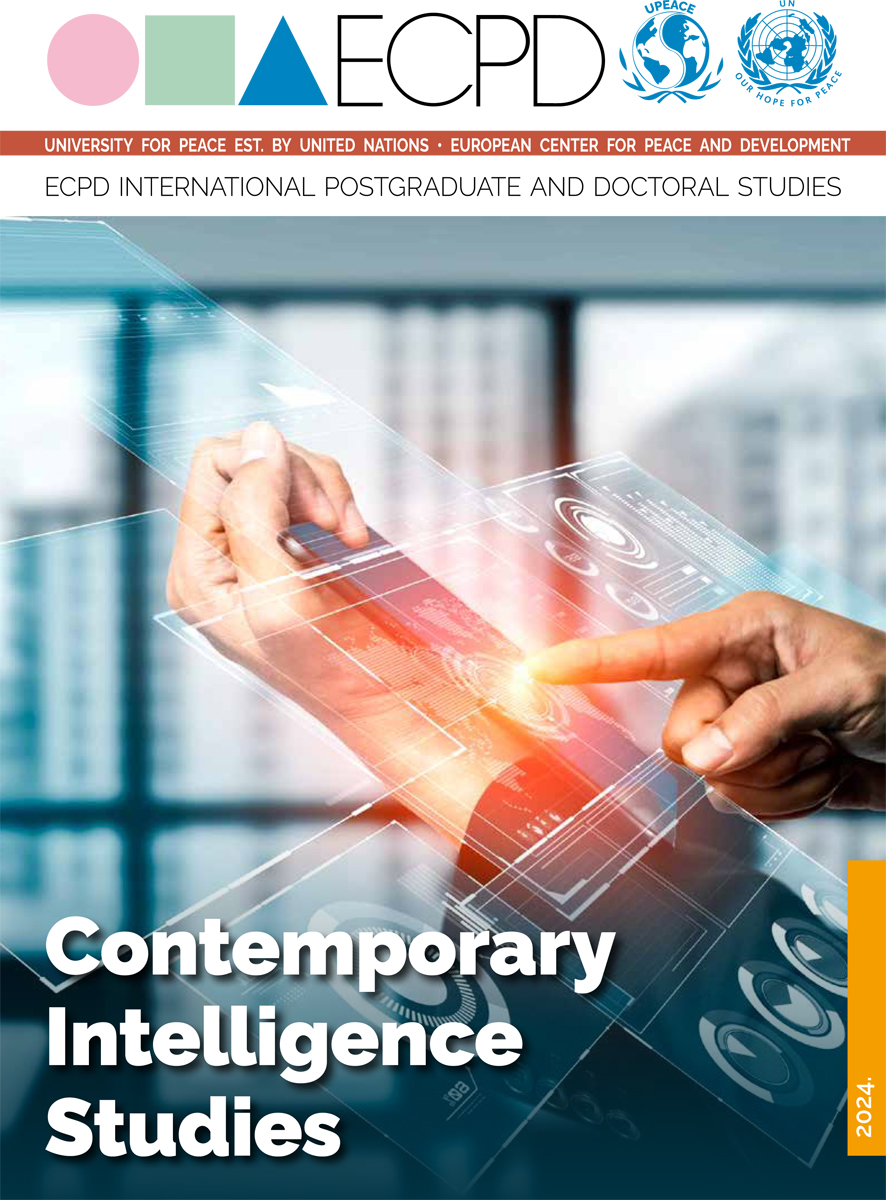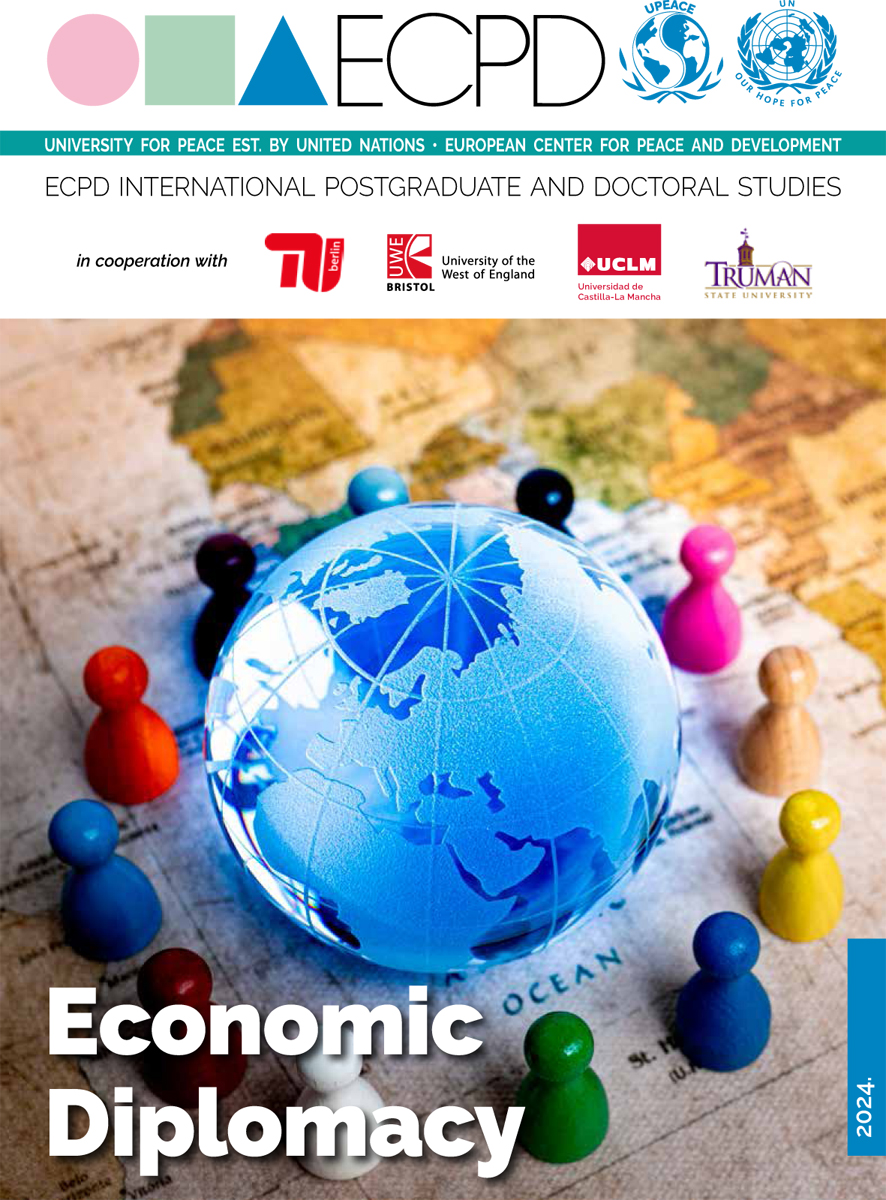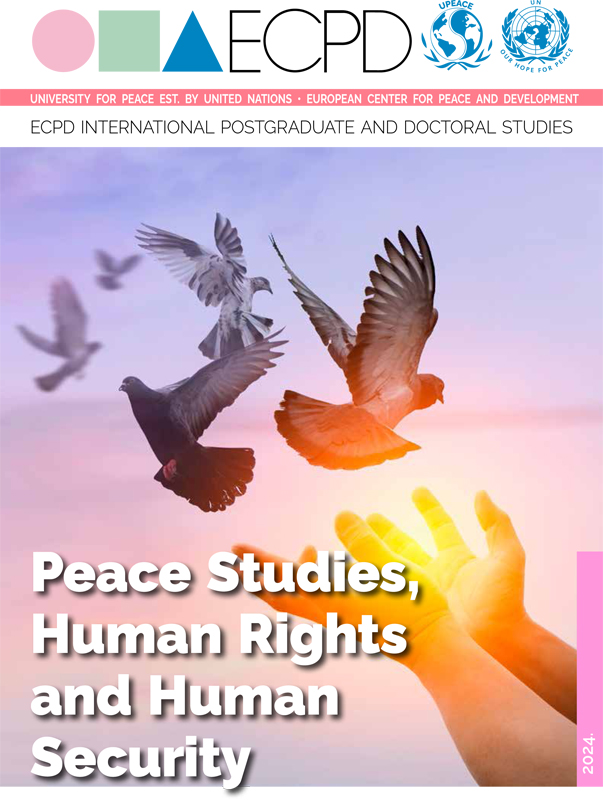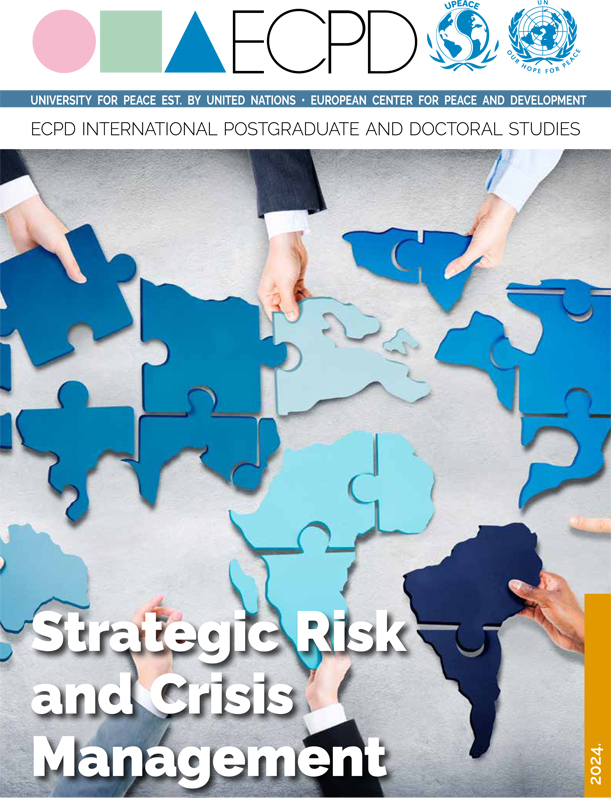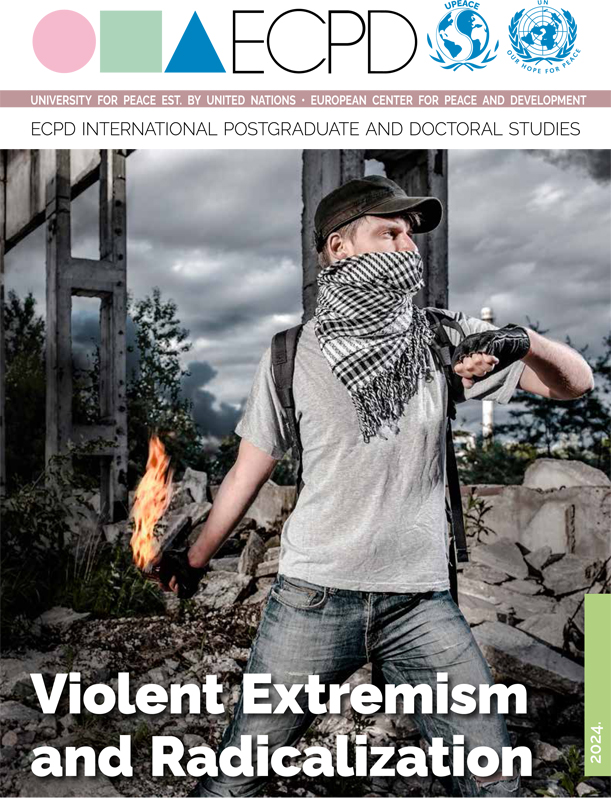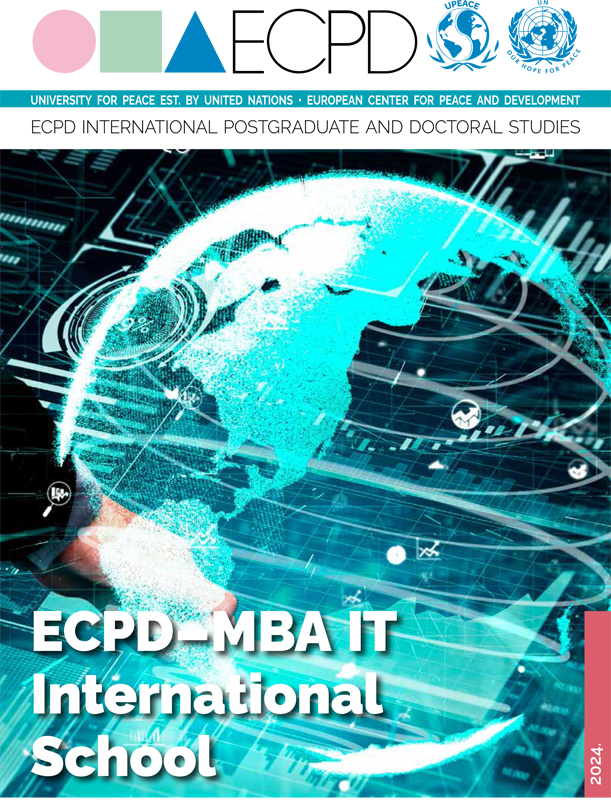The European Center for Peace and Development was actively engaged in the elaboration of research projects and studies relating to the problems of the country's economic development. The major projects of this kind were carried out as follows:
The Federate Fund for Crediting Economically Underdeveloped Republics and Provinces, 1965 – 1990
Project Client:
The Federation fund for Crediting the Underdeveloped Republics and Provinces of Yugoslavia.
Project Director:
Branislav Čolanović, Prof. Dr. sci.
Associate authors:
Prof. Dr Dragoslav Avramović
Prof. Dr Spasoje Medenica
Academician Prof. Dr Vladimir Stipetić
Prof. Dr Šefer Berislav
Year of elaboration: 1991
The researchers lead by Prof. Dr Dragoslav Avramović analyzed the levels of economic development of all Yugoslav republics and autonomy provinces, as well as the legal basis and purpose of the Fund established in 1965. Through the mediation of the Fund, they concluded that financial assistance for development was provided to the underdeveloped republics and province of Kosovo. In other words, the resources provided by the Fund formed part of overall investments of the Republics of Bosnia and Herzegovina - 12.5%, Montenegro - 20.3%, Macedonia - 22.9% and the Province of Kosovo even - 64.1%.
They concluded that the efficiency of investments was not satisfactory and was on a decrease. But this was the case with the Yugoslav economy in general. The Fund actually shared the faith of the existing economic and social system, which finally proved to be increasingly inefficient and finally collapsed. The authors also recomended economic reform and its substance.
Reintegration of Returned Emigrants and the Employment of Refugees and Displaced Persons
The Project Commissioner:
Ministry for Development, Science and Environment, Government of the FR of Yugoslavia,
Project Director:
Prof. Dr Branislav Čolanović
Consultants:
Momčilo Cemović
Prof. Dr Berislav Šefer
Dr Luka Todorović
Associate:
Svetislav Božinović
Year of elaboration: 1997
Addressing the extremely complex social and economic issue of reintegration of returnees, employment of refugees and displaced persons, as concluded by the researchers, was only one part of the actions taken with the view to overcome the acute problem of unemployment in general in the FR of Yugoslavia. It was also concluded that the process of reintegration of returned emigrants and the employment of refugees and displaced persons cannot be resolved separately; rather it must form part of the far-reaching strategy of the country's development and addressed within the scope of the increasing employment in general.
Experiences of the Council of Europe Fund for Social Development in Financing the Reintegration of Refugees and Other Social Cases
Project Client:
Ministry for Development, Science and Environment, Government of the FR of Yugoslavia,
Supported by:
Fund for Social Development, Council of Europe
Project Director:
Prof. Dr Branislav Čolanović
Year of elaboration: 1997
The main tasks and objectives of this project were to identify and point out at the dimensions of the problem which the FR of Yugoslavia and numerous other European countries were facing with in an attemptto solve the problem of reintegration and employment of refugees, as well as the potential financial sources needed for the implementation of the programmes dealing with the reintegration and employment of refugees and displaced persons.
The researchers concluded that the reintegration and employment of the refugees was only a part of the actions to be taken in order to overcome the problem of unemployment and recommended that it should be incorporated into the overall plan and programme of the country's economic and social development. They also concluded that the process of efficient reintegration and the unemployment problem require international support and financial assistance.
Impact of the International Sanctions on the Economy and Society of the FR of Yugoslavia in the International Perspective
Project Client:
Ministry for Development, Science and Environment, Government of the FR of Yugoslavia,
Project Director:
Prof. Dr Dragoslav Avramović
Governor of the National Bank of the FR of Yugoslavia
The Project International Council:
Prof. Dr Dragoslav Avramović
Prof. Dr Ichimura Shinichi
Prof. Dr Malica Mircea
Prof. Dr Vidosav Tričković
Prof. Dr Vendy Jacques
Prof. Dr Henry Paul-Mark
Prof. Dr Scott Norman
Year of elaboration: 1996
The sanctions against the FR of Yugoslavia (FRY) were introduced by the UN Security Council (SC) by its Resolutions 713 (1991), 787 (1992) and 820 (1993). The reason for their adoption was the opinion of the SC members that the FRY failed to observe the SC requests to stop its military engagement in the conflict in Bosnia and Herzegovina (B&H), which was regarded by all SC members as a 'threat to international peace'. There were some disputes among the authors and independent observers whether the reason and the method of their implementation were legally and humanly justified.
However, regardless of the divided opinions on the imposition of sanctions, there was unanimity that they most severely hurt innocent citizens (especially eldery and sick people and children) who should not be held as responsible for the policy of their government. The total embargo on science and culture, economic and social development, demographic movement and other determinants of development of society were counter-productive and could not contribute to the achievement of the desired goal, as was confirmed the authors. Aat the same time, they caused great damage to the economies of the neighbouring countries, particularly through a growing 'black market', drug trafficking and organized crime.
Countered by intensive internal propaganda, launched thought electronic and press media, the sanctions practically contributed to the strengthening of nationalist feelings not only among politicians but also among people; they deepened animosity of the people toward those who had imposed them. Countered by thoughtfully organized propaganda, they made the rich richer and more influential, while the poor became poorer and weaker in an attempt to create modern society.
As a rule the sanctions benefited the political elite and those who advocated them, making them richer and more influential, while the base of the population seriously detoriated. As far as the base of the population was concerned, the authors concluded that they 'had an adverse effect on the natural population movement and, due to a rise in mortality, coupled with the decreased birth rate, endangered the biological integrity of the population'. Moreover, the intensified migration of young and educated people seriously endangered demographic growth and economic and technological development of the targetted country.
The Project was elaborated by more than 25 prominent scientists, researchers and experts from the FR of Yugoslavia and several other countries and international organizations. Below is the list of Project
Redactors:
Dr. Nemanja Božić
Dr. Vidosav Tričković
The Project was completed and delivered to the client in December 1996. In 1997 it was published as a separate book in Serbian with the summary in English. The ECPD also elaborated a substudy 'The Impact of Sanctions on the Economy and Society of the Republic of Montenegro.
The European Center for Peace and Development elaborated several other research projects related to the economic and social development of the Former Yugoslavia, including:
· Development Policy of the Underdeveloped Regions – Classification and Comparative Analyses of the Practice of European and Non-European Countries, 1989;
· The System and Policy of Spurring the Development of Underdeveloped Regions in the SFR of Yugoslavia, 1990;
· The Yugoslav Bank Organization, with a proposal for the adoption of the Law on the 'Yugoslav Development Bank', 1992;
· Damage Caused by the Disintegration of the Former Yugoslavia; Military Operations and the Blockade of Serbia and Montenegro, 1993;
· Reconstruction and Revival of the Economy and Social Activities in the Ex-Yugoslav Republics, 1993.
· Policy of Scientific and Technological Development of the FR of Yugoslavia by 2000, 1996;
· The Center of Excellence (Research into the Justifiability of Establishing and Determining the Conditions and Procedures for the Most Favourable Institutionalization of the Center of Excellence in the FR of Yugoslavia).

















